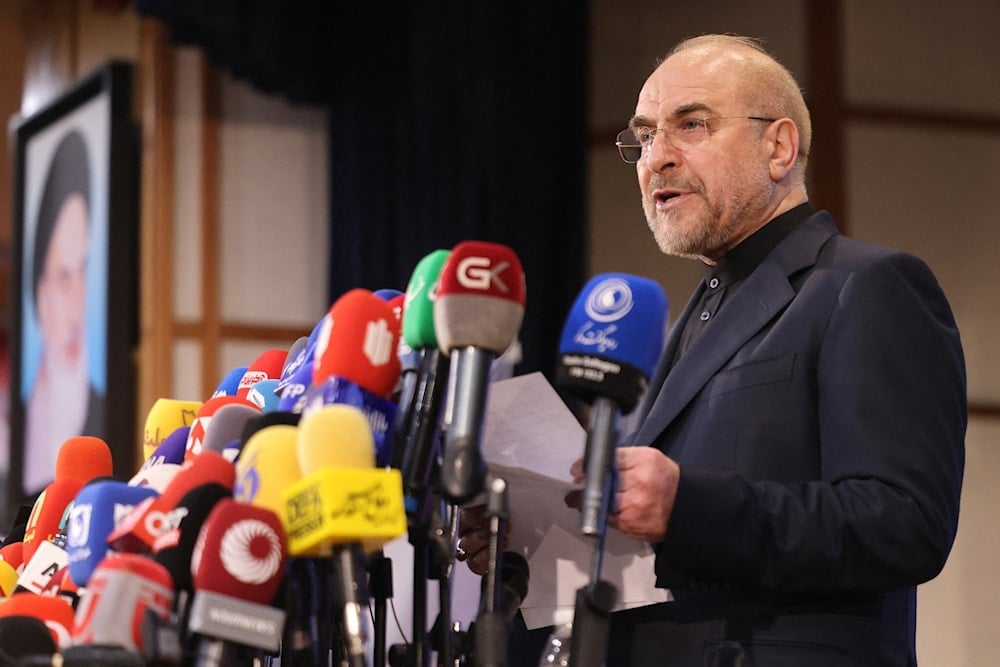UNSCR 2231 termination marks major win for Iran’s diplomacy: Qalibaf
Iranian Speaker Qalibaf hails UNSCR 2231 termination as a major diplomatic win, crediting Iran’s Resistance and strategic alliances.
-

Iran's Parliament Speaker Mohammad Bagher Ghalibaf addresses the media after submitting his candidacy for the Islamic Republic's upcoming presidential election in Tehran on June 3, 2024. (AP)
Iranian Parliament Speaker Mohammad Baqer Qalibaf praised a significant diplomatic and legal victory for Tehran, as Russia and China, along with 120 Non-Aligned Movement countries, have backed the termination of UNSCR 2231 restrictions and opposed Western attempts to use the snapback mechanism.
Speaking at a parliamentary session on Sunday, Qalibaf stated that Iran has secured one of its most significant foreign policy accomplishments, a victory he described as the outcome of the Iranian people's prolonged resistance and advancement in the face of harsh sanctions and pressures.
He characterized the letter from the foreign ministers of Iran, Russia, and China to the UN secretary-general and Security Council president as a sign of their strategic unity, with these three major powers explicitly stating that the three European countries' efforts to trigger the so-called snapback mechanism have no legal validity.
Qalibaf further stated that according to Paragraph 8 of Resolution 2231, all restrictions and obligations from that resolution have now ended, adding that the cancellation of previous resolutions has proceeded and that with the official acknowledgment of Iran's enrichment rights, the country's nuclear dossier has been taken off the Security Council's agenda.
He pointed to a recent letter from Iran's, Russia's, and China's permanent representatives at the UN offices in Vienna to the International Atomic Energy Agency, stating they stressed that any effort to trigger the snapback mechanism is illegal. Additionally, they made clear that since Resolution 2231 has expired, the IAEA director general's mandate for verifying and monitoring the JCPOA and Iran's nuclear activities has also ended.
Furthermore, the Iranian parliament speaker emphasized that the IAEA must follow the Board of Governors' resolution from December 2015 and should not act on unilateral interpretations from the West.
Qalibaf stated that these two joint letters represented not only a legal victory for Iran but also proof that global power dynamics are shifting as the world order is now divided on how to implement UN resolutions.
The parliament speaker ended his speech by stating that the structure of the international system is showing signs of a new era where China, Russia, Iran, and 120 Non-Aligned Movement countries have legally ended the misuse of international organizations' mechanisms and have stood against the unlawful imposition of will and coercion by the US and a few European countries.

 3 Min Read
3 Min Read










